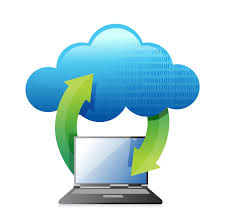Cloud computing has rapidly become a common infrastructure choice for both enterprise and start-up technology companies. The cloud provides an easily accessible mechanism where operating systems, applications, databases and file archives can be stored and scaled using virtualized environments.
A virtualized environment appears to the user as a fully dedicated server. In actuality, it is an encapsulated slice of the services available on a single physical machine. Each virtual environment is isolated. The applications and files uploaded to one environment are not visible to any other environment even though they are running on the same underlying hardware. A cloud-based virtual environment, once created, can be automatically duplicated and run on additional hardware servers in order to quickly increase processing power and smoothly handle higher loads. A virtual infrastructure, although isolated in appearance, does share the physical environment. Multiple businesses can run multiple virtual environments on one physical server. Application development can also take place in a cloud-native environment. Developers adopt automated security (check it out here) for these cloud-native environments to ensure it is free from vulnerabilities. read more


